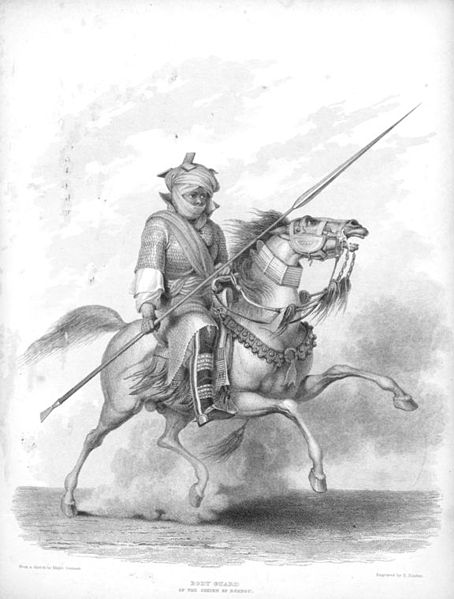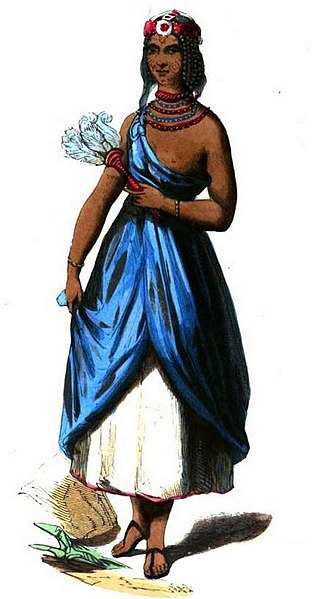The Kanuri people are an African ethnic group living largely in the lands of the former Kanem and Bornu Empires in Niger, Nigeria, Chad, and Cameroon. As well as a diaspora community residing in Sudan. Those generally termed Kanuri include several subgroups and dialect groups, some of whom identify as distinct from the Kanuri. Most trace their origins to ruling lineages of the medieval Kanem-Bornu Empire, and its client states or provinces. In contrast to the neighboring Toubou or Zaghawa pastoralists, Kanuri groups have traditionally been sedentary, engaging in farming, fishing the Chad Basin, trade, and salt processing.
Ali Modu Sheriff, a Kanuri politician and former Governor of Borno State, Nigeria, 2007
Ceremonial bodyguard of the Sheikh of Bornou in his full regalia, after a drawing by a British visitor in the 1820s. The mounted knight was central to the Bornu state, and many Kanuri people still value horsemanship and horses.
Photograph of Kanuri women dancing (1910s)
Photograph of Kanuri women dancing (1910s)
The Kanem–Bornu Empire existed in areas which are now part of Nigeria, Niger, Cameroon, Libya and Chad. It was known to the Arabian geographers as the Kanem Empire from the 8th century AD onward and lasted as the independent kingdom of Bornu until 1900.
Bornu territory by 1500
Young woman from Bornu, mid-19th century
Kanembu warriors and their mounted chief in an illustration from Heinrich Barth's Travels and Discoveries, Vol. III, 1857
Shehu Sanda Kura after the killing of Rabih az-Zubayr (1900)








